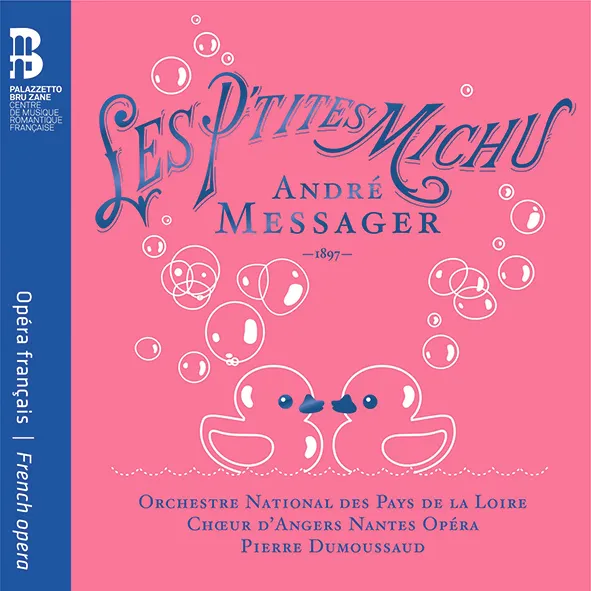
Messager Les p’tites Michu Violette Polchi, Anne-Aurora Cochet, Philippe Estèphe, Marie Lenormand, Damien Bigourdan, Boris Grappe, Artavazd Sargsyan; Choeur d’Angers Nantes Opéra; Orchestre National des Pays de la Loire/Pierre Dumoussaud Bru Zane BZ 1034 102:55 mins (2 discs)
Such was the attraction of Messager’s music and personality that even such wildly opposed big beasts as Debussy and Saint-Saëns were admirers. He had almost no success with serious operas, but his operettas were much beloved on both sides of the Channel. Les p’tites Michu of 1897 was one of his greatest hits, and little wonder with music of such charm and ingenuity. The plot, as you might imagine, is as flimsy as 19th-century operetta gets involving the mistaken identity of the two Michu girls, one an aristocrat, the other a cheesemonger’s daughter. The happy conclusion involves a double wedding with the aristocratic Blanche-Marie marrying the soldier of her dreams and Marie-Blanche a humble cheesemonger.
Pierre Dumoussaud directs a consistently energetic account. Coordination between the sung numbers and the large amount of spoken dialogue is superb (in fact, a first listen is best done with the libretto in hand supplied in the magnificently presented booklet). All the singing roles are sharply characterised. The two Michus, Marie-Blanche (Violette Polchi) and Blanche-Marie (Anne-Aurore Cochet), are well matched, and the male leads Gaston (Philippe Estèphe) and Aristide (Artavazd Sargsyan) appealing and resonant of voice. Much of the music is formulaic yet there is a wealth of subtlety in such numbers as the Act II quartet and duet, and the prayer that opens Act III. The chorus is at times a little squally and the recording could be more resonant, but as a whole this is an impressive reading of a delightful work.
Jan Smaczny